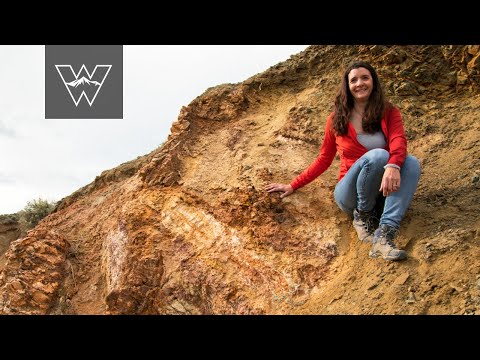Explore Oil & Earn Big: Petroleum Geologist Job Description & Salary

Petroleum Geologist Job Description Template
Petroleum Geologist Job Description Petroleum geologists are professionals who specialize in the exploration and extraction of petroleum resources. They play a crucial role in the oil and gas industry by identifying potential drilling locations and assessing the quality and quantity of oil and gas reserves. One of the key responsibilities of a petroleum geologist is to analyze geological data to determine the location of oil and gas reservoirs. This involves studying rock formations, conducting seismic surveys, and analyzing well logs to identify potential drilling sites. They also use advanced technology and computer models to predict the distribution and characteristics of petroleum reserves. Another important aspect of their job is to evaluate the economic viability of oil and gas projects. They assess the potential risks and rewards associated with drilling in a particular area by analyzing data on production costs, market demand, and oil prices. Based on their findings, they provide recommendations on whether or not to proceed with drilling operations. Petroleum geologists also collaborate with other professionals, such as engineers and geophysicists, to ensure the successful extraction of petroleum resources. They work together to design drilling programs, monitor drilling operations, and interpret data obtained from well tests. In summary, petroleum geologists are vital to the oil and gas industry as they are responsible for identifying and assessing the potential of oil and gas reserves. Their expertise in analyzing geological data and evaluating economic factors is crucial for the successful exploration and extraction of petroleum resources.Petroleum Geologist Responsibilities
Petroleum Geologist Requirements
How Much Does A Petroleum Geologist Make?
Petroleum Geologist Salary
| Experience Level | Annual Salary |
|---|---|
| Entry Level | $60,000 – $80,000 |
| Mid-Level | $80,000 – $120,000 |
| Senior Level | $120,000 – $200,000 |
A Petroleum Geologist specializes in studying and analyzing subsurface rock formations to locate and extract oil and gas reserves. Their work involves conducting geological surveys, analyzing data, and making predictions about potential reservoirs. The salary of a Petroleum Geologist varies based on their level of experience and expertise. Entry-level Petroleum Geologists can expect to earn an annual salary ranging from $60,000 to $80,000. As they gain more experience and move into mid-level positions, their salary can increase to $80,000 – $120,000 per year. Senior-level Petroleum Geologists, with extensive experience and expertise, can earn salaries ranging from $120,000 to $200,000 annually.
Petroleum Geologist Salaries by Country
Top Paying Countries for Petroleum Geologist
| Country | Average Salary (USD) |
|---|---|
| United States | 150,000 |
| Australia | 135,000 |
| Canada | 120,000 |
| Norway | 110,000 |
| United Kingdom | 105,000 |
According to available data, the top paying countries for petroleum geologists are the United States, Australia, Canada, Norway, and the United Kingdom. These countries offer lucrative salaries for petroleum geologists, with the United States leading the way with an average salary of $150,000. Australia follows closely with an average salary of $135,000, while Canada, Norway, and the United Kingdom offer average salaries of $120,000, $110,000, and $105,000 respectively. Petroleum geologists in these countries can expect to earn competitive salaries due to the high demand for their expertise in the oil and gas industry.
A video on the topic Petroleum Geologist
Video Source : Western Colorado UniversityInterview Questions for Petroleum Geologist
1. What is the role of a petroleum geologist?
A petroleum geologist is responsible for studying the subsurface geology of an area to identify potential oil and gas deposits. They analyze geological data, conduct surveys, and make predictions about the presence and viability of hydrocarbon reserves.
2. What skills are important for a petroleum geologist?
Important skills for a petroleum geologist include knowledge of geology, geophysics, and petroleum engineering principles. They should also have strong analytical, problem-solving, and data interpretation skills. Additionally, proficiency in computer software and the ability to work in a team are valuable.
3. How do petroleum geologists locate oil and gas reserves?
Petroleum geologists use various methods to locate oil and gas reserves. These include seismic surveys, well logging, and rock analysis. By studying the subsurface structures and characteristics, they can identify potential reservoirs and estimate the amount of hydrocarbons present.
4. What factors affect the formation and accumulation of oil and gas?
The formation and accumulation of oil and gas depend on several factors. These include the presence of source rocks rich in organic matter, suitable reservoir rocks that can store hydrocarbons, and impermeable cap rocks that prevent their escape. Additionally, temperature, pressure, and geological processes play a role in the formation and migration of hydrocarbons.
5. How do petroleum geologists assess the economic viability of an oil or gas field?
Petroleum geologists assess the economic viability of an oil or gas field by considering factors such as the estimated reserves, production costs, market demand, and infrastructure availability. They also evaluate the risks associated with exploration and extraction, as well as the potential for future discoveries in the area.
6. What are the environmental challenges faced by petroleum geologists?
Petroleum geologists face environmental challenges such as the potential for oil spills, land and water contamination, and the impact of drilling activities on ecosystems. They are responsible for implementing measures to minimize these risks and ensure compliance with environmental regulations.
7. How has technology advanced the field of petroleum geology?
Technology has greatly advanced the field of petroleum geology. Seismic imaging techniques, well logging tools, and computer modeling software have improved the accuracy of locating and assessing hydrocarbon reserves. Advanced drilling techniques and equipment have also made extraction more efficient and cost-effective.
8. What are the career prospects for petroleum geologists?
The career prospects for petroleum geologists are generally positive. As the demand for oil and gas continues, there is a need for skilled professionals to explore and develop new reserves. Opportunities exist in oil and gas companies, consulting firms, research organizations, and government agencies.
9. What are some current trends in the petroleum industry that affect petroleum geologists?
Some current trends in the petroleum industry that affect petroleum geologists include the shift towards renewable energy sources, increased focus on environmental sustainability, and the use of advanced technologies for exploration and production. Additionally, changing geopolitical dynamics and market fluctuations impact the industry and influence the work of petroleum geologists.
10. How does the future of petroleum geology look?
The future of petroleum geology is likely to involve a combination of traditional and emerging practices. As the world transitions towards cleaner energy alternatives, petroleum geologists may be involved in carbon capture and storage projects or the exploration of unconventional hydrocarbon sources. The field will continue to evolve, requiring professionals to adapt to new technologies and environmental considerations.






